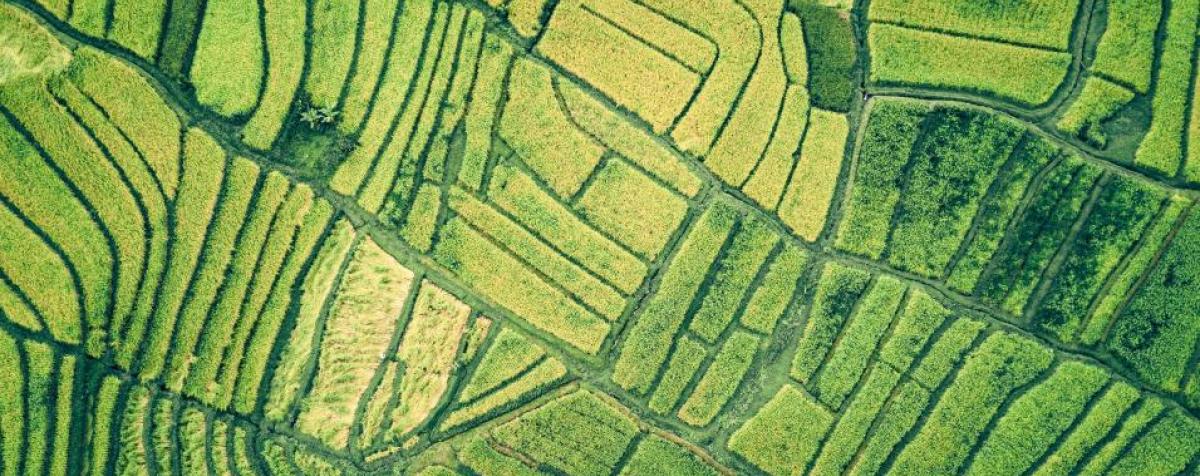Upcoming Events
There are no upcoming events at this time but be sure to check back soon!
Past Events
-
Everything on the Table: Reimagining Global-to-Local Food Systems
Climate change and global food systems are deeply intertwined. Land use, soil health, water management, and energy production associated with agriculture account for more than 30% of annual global greenhouse gas emissions. At the same time, the impacts of climate change — higher temperatures, drought, rising sea levels, ocean acidification, and extreme weather — are posing challenges to our food supply and the livelihoods of millions. Climate change is here, and it is already impacting how, where, and by whom our food is cultivated.
In the fall of 2021, Korbel's Environmental Sustainability Initiative co-hosted a three-part series taking a global-to-local look at how climate change is shaping the global food system and reshaping Colorado’s role therein. We heard from policymakers, scientists, researchers, and producers with diverse perspectives on how we can reshape our food systems to be more sustainable and equitable, while meeting the challenge of feeding an expanding population.
The Global Food System
The global food system accounts for approximately 10% of the global economy and supports the livelihoods of over 1 billion people. It also faces massive challenges in meeting the world’s needs in ways that are both equitable and sustainable while maintaining productivity under a changing climate. Those challenges have never been more stark.
In our premiere webinar, we looked at the ways that our planet’s food systems are intertwined and the new realities facing agriculture production in a world requiring new innovations and approaches to create greater resiliency while increasing sustainability.
Changing Climate, Changing Livelihoods
Climate change-driven migration is already here, and it will have particularly disruptive impacts on Central America, a region with a significant agricultural workforce. We’ll discuss how climate change will continue to impact farming livelihoods, the underlying forces of migration, and how these trends might ultimately impact Colorado communities. Our second webinar explored immigration, climate justice, and the changing face of global mobility.
Colorado’s Food Landscape
In our final episode, we zoomed in to look at food production in our own backyard. How are Colorado farmers and ranchers adapting to our changing climate? What impacts are they seeing, and what steps are they taking to safeguard the future of their products? We talked to local agricultural producers and experts about the innovative ideas and solutions they have implemented and how these innovations can be translated globally.
Everything on the Table: Re-imagining Global-to-Local Food Systems was presented in partnership by:
- The Environmental Sustainability Initiative at the Josef Korbel School of International Studies, University of Denver
- The Institute for Science & Policy at the Denver Museum of Nature and Science
- The Colorado State University System’s new Spur Campus, International Agriculture Program
-
Inauguration to Earth Day: Implications of the Biden-Harris Administration’s Climate Policy in the First 100 Days
The Biden-Harris Administration has set out an ambitious national plan to address climate change, pledging to build a more equitable, resilient, carbon-free U.S. economy by 2050. On April 19, 2021, Dean Fritz Mayer moderated a discussion of specific climate policy actions by the Administration in its first 100 days, with implications from the local to the international level. Dean Mayer was joined by Vickie Patton, General Counsel for Environmental Defense Fund, and Dr. Tim Profeta, Director of the Nicholas Institute for Environmental Policy Solutions at Duke University. The event was hosted by the Environmental Sustainability Initiative and the Scrivner Institute of Public Policy.
-
Can Democracies Manage the Climate Crisis?
On January 25 & 26, 2021, the Korbel School hosted the first annual Denver Democracy Summit, in partnership with the Alliance of Democracies Foundation. The summit featured a session that explored climate change as an existential threat to democratic governance and the role of science and evidence-based policy-making in confronting this threat. Though the scientific community has reached a consensus on the causes and consequences of a changing climate, large segments of the public the world over continue to contest both its causes and effects and remain largely indifferent to prioritizing climate action over other, more immediate, public policy concerns. This panel explored the prospects for collective action on climate change and how other issues—from declining trust in government to mistrust of expertise—complicate any potential action.
-
The Economic Case For U.S. Leadership On Climate Change: Harnessing America’s Potential to Lead and Compete in a 21st Century Climate Economy
On October 15, 2020, Korbel School Dean Fritz Mayer moderated a conversation with Senator Michael Bennet and a panel of experts about the strategic case for U.S. climate leadership that situates the U.S. at the forefront of clean energy innovation, improved security and a path toward better economic prosperity.
-
Climate Change: Can the U.S. and China Collaborate?
Given recent developments around collaboration on climate change between the U.S. and China, the Korbel School's Center for China-U.S. Cooperation and the U.S. Heartland China Association (USHCA) hosted a panel discussion with top experts from both countries to explore challenges and opportunities for collaboration.
July 1
August 1
Sorry, there are no scheduled events this month or for the provided criteria above.
